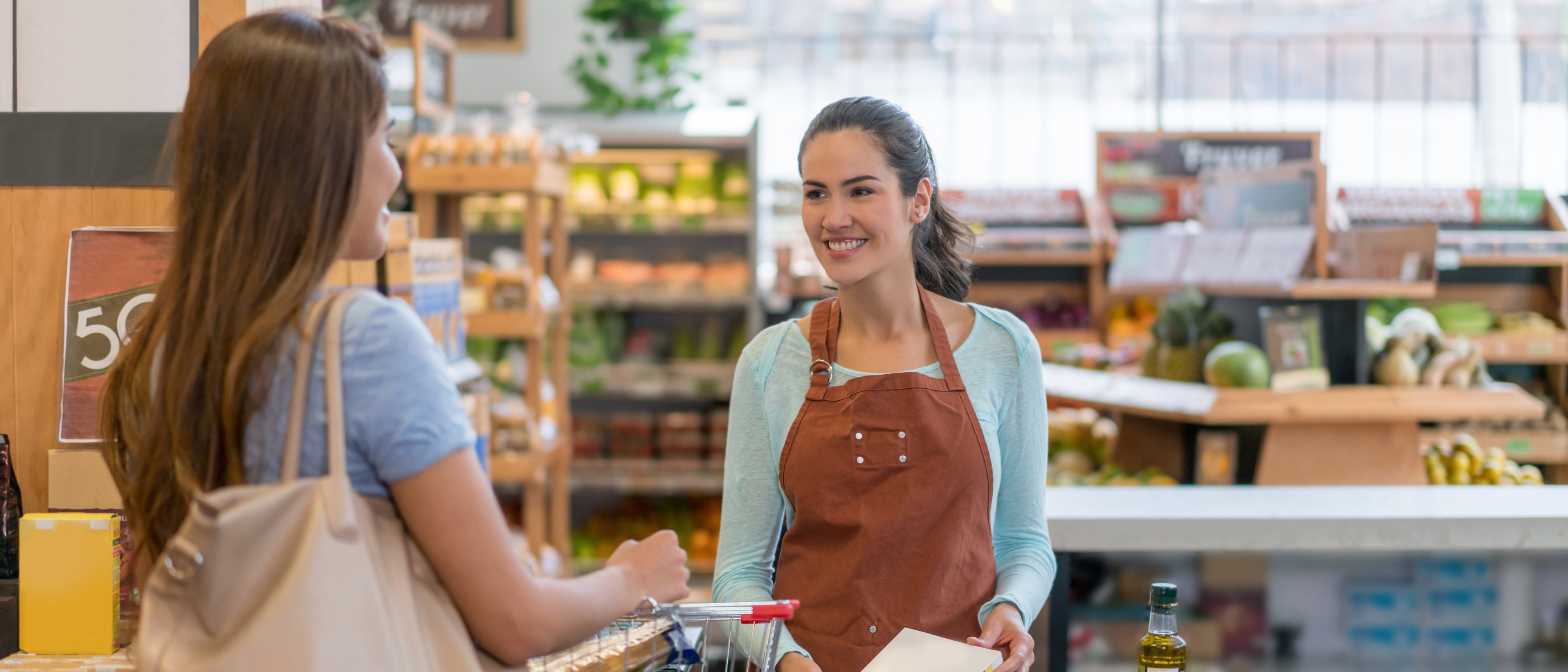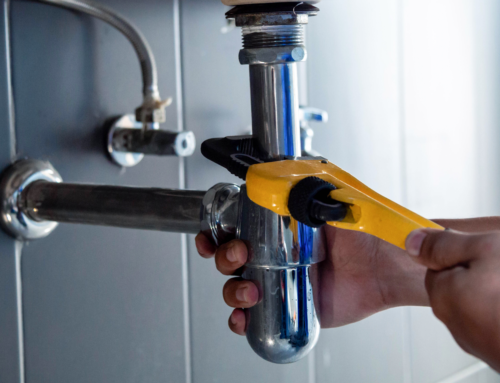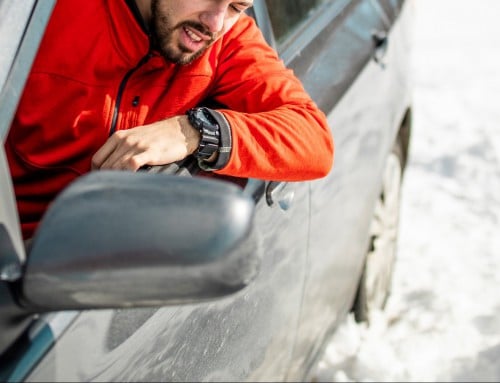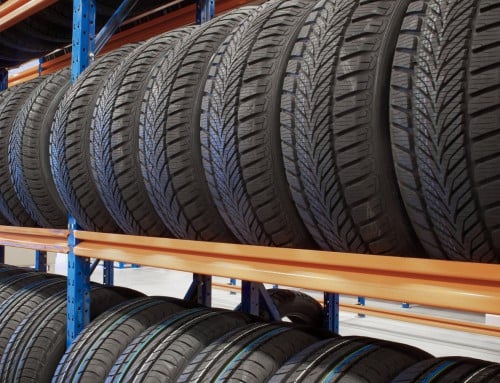There are a few common risks for grocery retailers that owners need to be aware of to help protect their stores. While some of these risks are common to all retail operations, grocery stores have risks that are unique. Knowing the common risks that grocery stores face can help you be aware of situations that can harm your business.
3 common risks for grocery retailers
1. Theft
Theft is a common risk that unites all retailers, but grocery retailers can have a harder time dealing with theft due to the nature of their products and business. Unlike retailers that sell electronics or other expensive goods, retail grocers don’t usually have high-tech security systems. This makes theft more likely and easy to conceal. Additionally, many grocers are embracing self-checkout technologies to help customers save time. Unfortunately the convenience of self-checkout may also result in more instances of theft!
The cost of food is also increasing. This trend is resulting in more theft at grocery stores. Specifically, increases in the price of meat has resulted in a trend of increased theft. To help combat the risk of theft, it’s important to make sure your store is equipped with security cameras and have your staff keep an eye out while stocking shelves.
2. Contaminated products
It feels like every week there are product or produce recalls due to contaminated products that could make your customers sick. In the past, scares like the ‘mad cow disease’ outbreak and the Maple Leafs foods listeria issue that happened in the 2000’s left a lasting impression on the mind of the consumer, resulting in a huge loss for the Canadian beef industry and retailers. The Canadian Food Inspection Agency (CFIA) announces product recalls on an almost daily basis, and it they have often involved fruit, vegetables and other pre-packed produce.
It’s important to make sure your business is protected in the event that one of the products you sell ends up making one of your customers sick. Being proactive about following the CFIA’s warnings is a good start. Always make sure that you remove the potentially hazardous product and make sure any customers who purchased it know they can return the item for a refund.
3. Slip and fall lawsuits
Slip and fall incidents affect most businesses, and we often stress the importance of having a good risk management program to help avoid these type of incidents. Like any other Canadian business, grocery retailers are already at risk due to wet and icy surfaces both inside and outside their premises that arise as a result of the weather. But these risks are even more present in grocery retail locations due to the nature of the business. Produce falling on the ground and customers accidentally dropping or spilling products can also create hazards for other shoppers. There are a number of examples of grocery retailers paying out large sums after customers were injured in a slip and fall accident.
Having a risk management program in place with proper documentation and records can make a difference when it comes to litigation. Beyond that, the best response is to be proactive about keeping your grocery store safe from hazards. Having a spot check at regular intervals is always recommended. Also having a security guard who is able to witness and make records if an incident does occur, can help.
Insurance is key
Taking precautions against these risks is an important first step, but sometimes you can’t control what happens and you may suffer a loss. For those instances, it’s important to have the appropriate insurance for your grocery store, so that the costs don’t fall entirely on your shoulders. Visit our grocery store insurance page to find out more today!
This blog is provided for information only and is not a substitute for professional advice. We make no representations or warranties regarding the accuracy or completeness of the information and will not be responsible for any loss arising out of reliance on the information.






